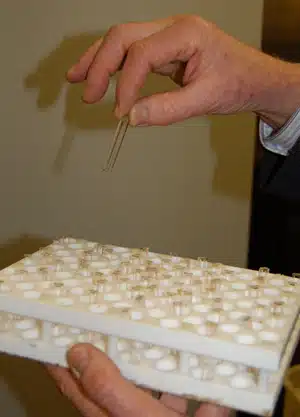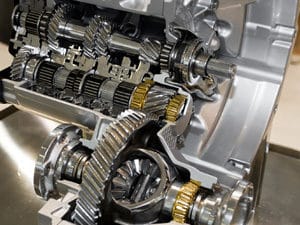Degreasing And Cleaning – Key Questions To Ask

 There can be no doubt that manufacturers of metal components have remained keenly interested in the advantages to be found in process cleaning, while being confused by the amount of misinformation that seems presented to them.
There can be no doubt that manufacturers of metal components have remained keenly interested in the advantages to be found in process cleaning, while being confused by the amount of misinformation that seems presented to them.
There can only be two reasons for this. These is an intention to mislead or simply a lack of understanding of the subject.
In any event, the user needs to take time to match what is said to what is fact. Too often companies generalise on the basis that they are not keen for users to look deeply at the subject, yet this is vital if good decisions are to be made.
In the end, the final judgement of the user is what matters but how many people express frustration at some of the suppliers they have met who spent more time criticising a proven product rather than validating their own.
Too often, suppliers are advising what not to do rather than dealing with what really works. This is negative selling and appears on the increase as the market shrinks, regulation gets tighter and independent specialists are more limited in numbers.
Recent history suggests that larger suppliers rely on their size to justify their competence when in fact the really satisfied customers are saying smaller companies with real specialists provided the best solutions.
No one can argue against the fact that the popular choice for metal cleaning and degreasing is still vapour degreasing. This is confirmed by the companies involved in making machinery for degreasing. The order books are heavily stacked in favour of vapour degreasing. If there is one slight disadvantage currently, lead times are often 20 weeks to delivery of machines.
It is clear though that these highly cost-effective systems, which use very little solvent, are likely to remain the first choice for some considerable time.
Arguments related to the Solvent Emissions Directive carry little weight with modern machines as they are so well engineered that they are compliant with regulatory requirements. If there is one common request made by users it remains that they wish there was a single company capable of offering the total solution, e.g. both their own product and machinery together. This would shorten the circle and place more pressure on the supplier to be responsible for promises made.
Most machinery companies work with a multitude of chemistry suppliers, since they want the maximum sale of machines, but should disputes arise this can be a protracted problem as it’s easy to blame someone else for the issues involved.
Much is said about vacuum and hermetically sealed systems being the best solution. They are certainly the most expensive. Speak to an independent specialist to ensure you know the limits of these machines and the cost benefits of alternative designs.
Suppliers who claim aqueous systems are superior need to ensure they advise the user that more energy, more space, longer cleaning cycles more risk of residues and waste disposal issues should be taken into account. Global warming is an issue for all of us so factor in the amount of energy required for heating and drying. To accept that water is safer or better, needs to be well argued. Never forget that water-based cleaning solutions need changing regularly and the oils and metals produced by these processes are waste and needs correct and very expensive disposal.
When considering vapour degreasing it will often be suggested that product transfer systems attached to the existing open-topped machine bring a number of benefits. For handling benefits it is true but never doubt they will not contribute to reducing your consumption, so will do nothing for emission targets.
The best way forward is to make a supplier talk to you about their own product. Beware of those who distract you from this. If a claim is made that seems suspect, ask for the claims to be made in writing. Transparency is a vital ingredient in any relationship with your supplier.
The target audience for most suppliers are those using the carcinogen Trichloroethylene. This is now banned for general use and requires specific authorisation for use in cleaning applications. Do your research, set the questions and insist on the evidence for the arguments put forward. Protecting your business, your staff and the community around you gives a sound basis to ensure a real assessment.
We can provide you with a Material Safety Data Sheet, independent laboratory reports, product samples or technical assistance. For more information or advice please contact us by telephone on +44 (0) 20 8281 6370 or use our contact form.
Vapour degreasing solvents are supplied and supported by EnviroTech Europe Ltd. Manufactured in the United Kingdom and available on short delivery times through our dedicated team of distributors worldwide.
Share this page:
